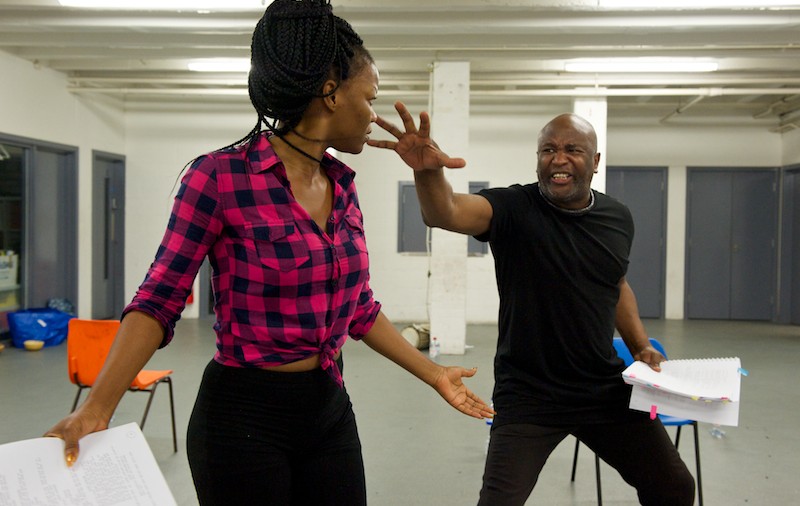The Gryphon talks to Moji Kareem, who is directing Iyalode of Eti, a Nigerian re-imagining of the famous renaissance John Webster play, The Duchess Of Malfi. We managed to speak to her before the play’s run at the West Yorkshire Playhouse to ask her about the importance of BAME (British, black, asian and minority ethnic) theatre and the difficulties of tackling a theatrical classic and transforming it into something fresh and new.
What first drew you to The Duchess of Malfi?
I studied it at university and was very drawn to the language, the imagery, the whole world of power-playing and struggle of women. I love strong women and The Duchess was somebody that I could relate to on a number of levels. I could see a strong similarity between the religious set up of Webster and the traditional religion that we had [in Nigeria]. This is something that translates really well into my culture and I was so fascinated by the text that I felt I had to do the project. The way that it is written, the poetry of it. I’m just fascinated by language and how people use it.
How have you approached dealing with the language of The Duchess of Malfi?
We’ve tried to think of features in the Webster script and then think of what the equivalent is in Yorubaland. So the equivalent of The Duchess would be the leader of the women. In every town they would have an equivalent, a woman that is very powerful and would go to the king with all of the concerns of the women. It’s just about trying to find all of those similarities. You will easily see how all these things have been translated and see what is it about this world that actually exists in our world. As soon as we started to dissect the play, we realised that the whole world is the same.
Were you surprised by that?
Not really. Once you start directing you start dissecting. From that point you realise that all these things happen anywhere in the world. There will always be people in society who have this issue of power, of a need to control and advance in society and class. Maybe I was surprised that the issue of class plays the same in Webster as it does Yorubaland. The same way that it happens in the western world on the basis of your status and class, that exists in Yorubaland as well.
What were the aims in terms of audience? Who did you have in mind when you were conceiving this piece?
It’s funny you should ask that question. When I first came to the here to discuss the possibility of the show, we talked about audience and I remember saying to the Artistic Director that [we’re aiming for] a diverse audience. We have Webster fanatics who follow us online and from the moment we started publicising the show people became curious to know what we are doing with Webster. They’d say “What do you mean it’s set in Africa?!” So from that point of view, it is not a piece that is just for Africans; it’s a piece that’s about this whole idea of a universal struggle. Whatever happens, you could be white, I could be black, but actually the reality of it is, the stuff that happens to us is universal.
‘It is not a piece that is just for Africans, it’s a piece that’s about this whole idea of a universal struggle…You could be white, I could be black, but the stuff that happens to us is universal.’
Why is Utopia Theatre the right company to produce The Duchess of Malfi?
Because a lot of black artists never really get the opportunity to perform classics. And when black companies do do classics, they have to do it in a way that appeals to the establishment. I did not want to do classics in that way. We’ve staged it in a way that would appeal to people who are not used to coming to the theatre. My aim for the company is to take classics and do them in such a way that allows people who would never normally pick up that text, to pick it up and say “who is this Duchess of Malfi?”
‘A lot of black artists never get the opportunity to perform classics [or] they have to do it in a way that appeals to the establishment.’
Could you comment on what Brexit means for the arts?
(Laughs) We have to start looking at things critically. We need to realise that we now have a big role to play in society in terms of what we put out there. Even for myself after this production [in the context of Brexit], I’m thinking more politically about the work that I want to do. I now need to think even more about what a text is going to say about some of our values that we’re losing. Whenever I pick up a text I have to think about how it is going to respond to what we just did. I’m now thinking ‘what classic text can I do now about this?’ Using classic texts enables us to avoid a constricting instant classification. I want to work on other classics particularly with the community. Community is the way to improve accessibility to the arts. Once you experience theatre, you always come back.
Iyalode of Eti is on tour and will play the following venues and dates:
Mon, 26th September 2016 to Wed, 28th September 2016 at Sheffield Theatre
William Rees-Arnold
(Image courtesy of Utopia Theatre)

